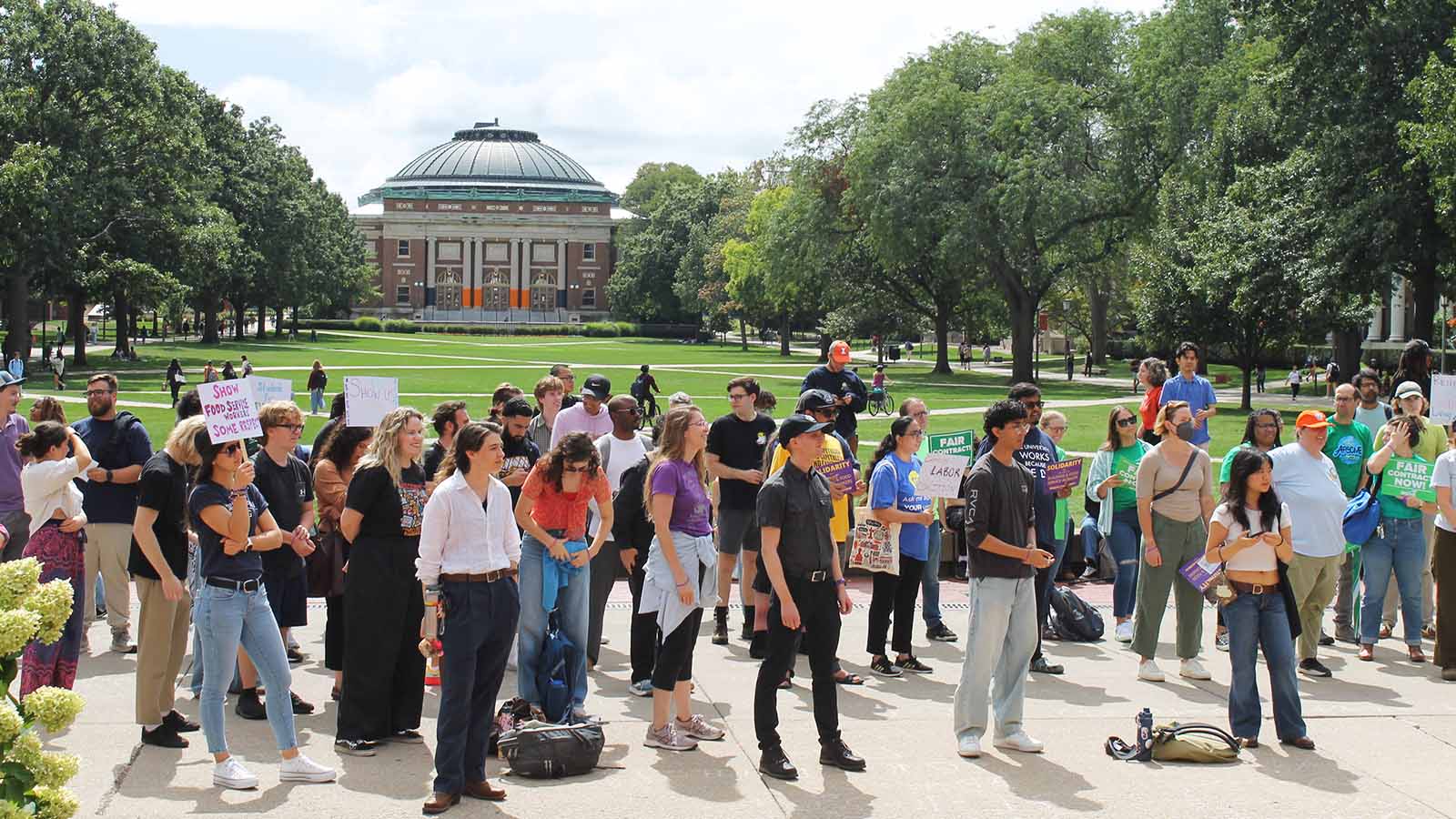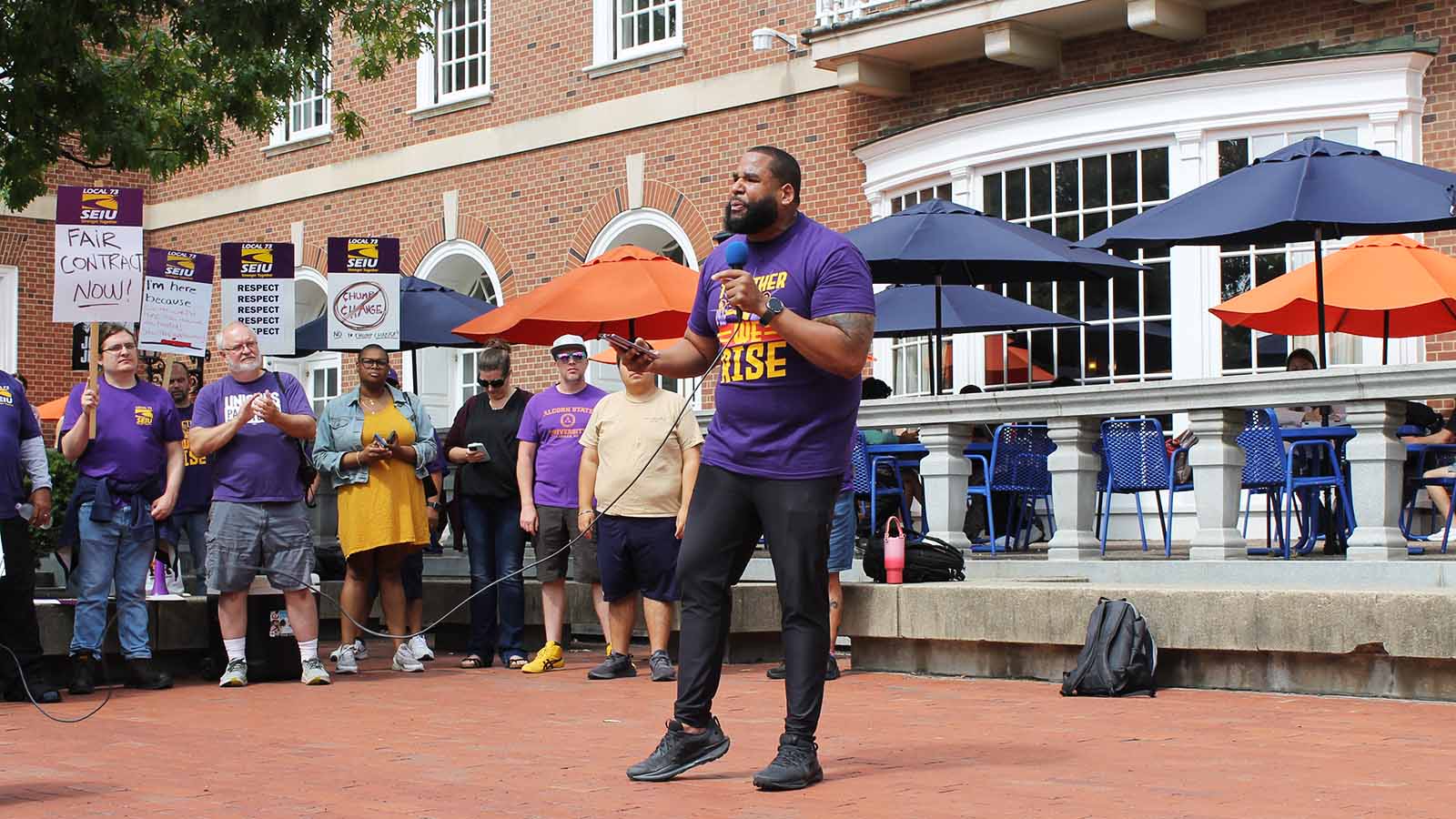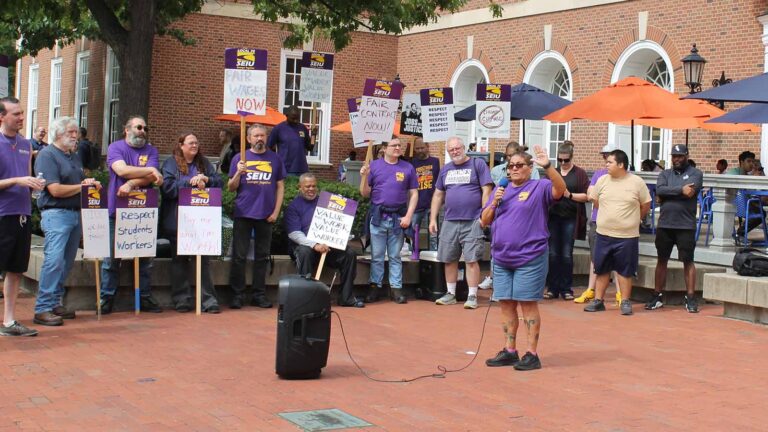Updated 6 p.m. Sept. 13, 2023
URBANA — As a building service worker at the University of Illinois, Melody Decker has cleaned up feces in shower stalls and vomit that just missed trash cans.
Despite her own visceral reactions to bodily fluids, she loves her job. She said she has made lasting friendships with students even attending weddings and meeting newborns.
“We don’t mind doing our job. We just want to get paid for what we do,” Decker told a cheering crowd at a rally on Friday.
Decker is the union president for food and building workers in the Service Employees International Union Local 73 at the University of Illinois in Urbana-Champaign.
She told Illinois Public Media on Friday evening that SEIU members voted to strike instead of accepting the university’s latest contract offer. She said her team would meet over the weekend to decide when to strike.
U of I spokesperson Robin Kaler said the university values the building and food service workers and their contributions.
“The agreement is consistent with the market, and we are disappointed union members chose not to ratify it. We are preparing for a possible strike that could happen as early as September 22,” Kaler said by email.

It’s the second contract proposal SEIU workers have voted on. They already voted to strike instead of accepting an earlier version.
Decker said the university and union agreed on all the contract conditions except pay. She added that the university is offering hourly raises of less than a dollar.
Meanwhile, the university has enrolled its largest ever freshman class, at 9,008 students. This is more students than the university expected, causing a housing crunch.
“Now that the campus is overbooked by thousands, we have twice as much work, because we have twice as many people in the classrooms,” Decker explained.

Members of other unions and undergraduate student groups offered their support Friday at a rally on the U of I Main Quad.
Labor and history professor Augustus Wood said he plans to join SEIU workers at the picket line if they do strike. He helped lead graduate workers on campus who were striking back in 2018.
“The hardest part was going into a room of about 2,000 people and asking them to quit their jobs, not knowing if they could get them back, because that’s what a strike is,” Wood said.
He also said the strike worked, and they won conditions they wanted in their contract.
Emily Hays is a reporter for Illinois Public Media.

